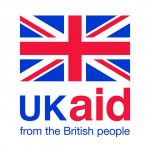Notwithstanding the sombre mood we find ourselves during this global pandemic, the Digital Identity team have a reason to celebrate; the successful completion of the first phase of the programme, generously supported by the UK’s Department for International Development (DFID). We are excited to publish this report, which reflects on our key achievements to date and the impressive amount of insights we’ve gathered on what was, at the start in 2016, a very nascent topic.
In early 2016, the role of identification (ID) in development was just beginning to gain traction. Despite being inextricably linked to other development priorities and outcomes, access to ID was often taken for granted. The UN Sustainable Development Goals (SDGs), specifically 16.9 – “Legal identity for all, including birth registration, by 2030” – focused the international community on the realities of the nearly one billion people who could not fully participate in either the analogue or digital world because they could not prove who they were.
A person’s ability to prove their identity is key to their economic, financial and social development. Without proof of identity, people are less likely to be able to access services like healthcare and education, assert their rights, vote in elections or fully participate in society. However, according to estimates from the World Bank, one billion people still lack formal identification, 80 per cent of whom are in either Sub-Saharan Africa or South Asia.
Developments in India, with the rapid scaling of the Aadhaar system (which provided all citizens with a 12-digit ID number and biometric authentication), shone a light on both the potential for, and challenges of, integrating technical solutions and private sector players in an official ID ecosystem. As the Digital Identity programme was ramping up, it became obvious that a shared definition of “digital identity” did not yet exist. There was not sufficient evidence or consensus on the roles and responsibilities of the public and private sectors; what constitutes an inclusive and accessible ID ecosystem; what level of assurance different use cases would require; or what types of business models would have the greatest social and commercial impact.
Against this backdrop, the Digital Identity programme focused its learning agenda on answering these questions and developing partnerships, such as with the World Bank’s Identification for Development (ID4D) Initiative, that would help forge a shared view of this nascent area of development. Fast forward to 2020, and digital identity is booming, both in concept and in practice. Alliances have sprung up around the world to tackle different elements of the ecosystem, from technology to privacy and ethics. Governments, especially in countries with low ID penetration, are making reforms and investment in their identity infrastructure a priority, and are looking for new ways to work with the private sector and leverage technology to support these partnerships. Multi-stakeholder cooperation has led to shared principles and definitions, and there is early evidence that digital identity initiatives are having an impact and new business models are emerging.
Over the last four years, we have worked with mobile network operators (MNOs), governments, intergovernmental organisations, private sector partners, NGOs and humanitarian agencies, to research and analyse the barriers vulnerable populations face in accessing or using ID; explored sustainable business models through pilots that demonstrate how mobile could accelerate digital identity solutions; and advocated for enabling policy environments and proportionate regulations that ensure digital identity ecosystems are inclusive and easily accessible.
And here’s a few of the Digital Identity programme’s achievements
- We were the first to demonstrate a direct relationship between access to official ID and access to mobile in one’s own name. In our annual publication series, ‘Access to Mobile Services and Proof of Identity’, we found that over 155 governments around the world have mandatory SIM registration policies in place – essentially requiring proof of identity before one can access a SIM card (and a mobile money wallet, where available). Having examined SIM registration policies globally we found, among other things, that the majority of markets with low mobile penetration, also have low levels of ID-registered populations. We managed to build up a strong body of evidence suggesting a direct relationship between people’s ability to access government-recognised proof of identity and the level of mobile penetration in that market. The reports also highlight that robust identity verification is still nascent in the context of mobile SIM registration; just 12 per cent of countries mandating SIM registration enable MNOs to verify the accuracy of customers’ identification credentials against an approved government database. These reports also found that a significant number of countries lack a comprehensive privacy framework, which in turn affects trust in the digital ID ecosystem.
- As part of our programme we partnered with the World Bank, Caribou Digital, the Australian Department for Foreign Affairs and Trade, and DFID to deliver on the Commonwealth Digital Identity Initiative helping to make progress in providing a digitally-enabled identity for every woman and girl in the Commonwealth by 2030.
This report describes our activities in detail, as well as summarising the achievements and lessons of the Digital Identity programme over the last four years, documenting how the programme has established the GSMA as a thought leader, convener and catalysing partner in digital identity for the underserved. The report also sets the scene for the next phase of our programme (2020-2023), which will focus on addressing specific digital identity challenges in selected countries. Specifically, we will:
- look to promote socially impactful and commercially sustainable mobile-driven identity solutions; and
- showcase the role of MNOs in strengthening digital identity ecosystems, including through effective public-private partnerships.


